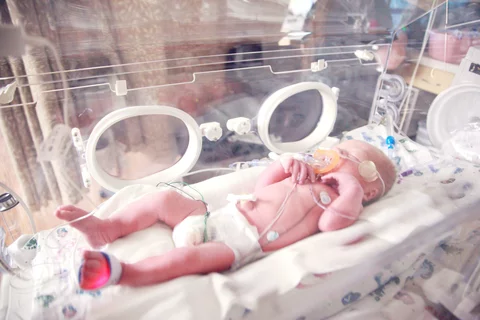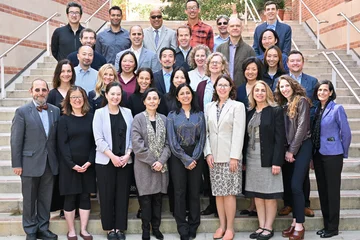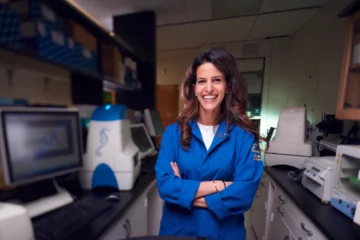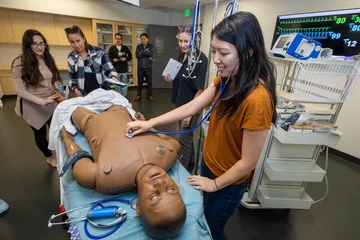A Day in the Life of Dr. Josephine Enciso, Associate Clinical Professor of Pediatrics and Neonatology
Josephine Enciso, MD, has always loved children. But her first day in the life of a neonatologist, when she was a pediatrics intern, could have been her last. "The NICU is an overwhelming place," she says. "The babies are very sick, the nursing staff is very knowledgeable and high-intensity, and the work is extremely fast-paced."
However, these are some of the reasons Dr. Enciso, an associate clinical professor of pediatrics and neonatology at the David Geffen School of Medicine at UCLA, enjoys her work today. "This is an extremely detailed, data-driven subspecialty. With babies as tiny as 400 grams on the edge of viability, the need for very precise calculations is almost constant," she says. "I also enjoy the NICU's very team-driven atmosphere, with bedside nurses, charge nurses, neonatal nurse practitioners, neonatology fellows, pediatrics residents and attendings all working closely together."
Dr. Enciso also finds being her patients' first physician rewarding. "You don't have to rely on the parents to provide a history, because all the data are right there," she says. "Patients' problems tend to be very obvious and I like doing an intervention and seeing its effect right away. It makes me feel very useful."
The Littlest Patients
While 23 to 24 weeks' gestation is considered the threshold of viability, Dr. Enciso says that babies have been successfully resuscitated at 22 weeks, though they have a very low survival rate. "The 23- to 25-week babies often end up with severe to profound disabilities, which means we deal with a lot of ethical issues associated with quality of life," she explains. "The hardest part of the specialty is that we can't promise the parents we'll hand over a healthy baby to them in the end."
Dr. Enciso finds helping her patients' families fulfilling. "We're getting them through difficult decisions and difficult times, so compassion, patience and good communication skills are essential," she says. "We work on the side of the family in terms of their hopes for their child, but as a medical team, we also have to be advocates for the baby."
Of course, every case is different. While a baby with cardiac or gastrointestinal anomalies may need NICU care for months, at-term babies with mild respiratory distress from a surgical delivery may be sent home after a few days.
Research-Focused Training
Physicians who want to become neonatologists first complete a three-year pediatrics residency. A three-year neonatology fellowship follows. "Neonatology has always been a very research-based fellowship," notes Dr. Enciso. After a first year spent in clinical training, the remainder of training is devoted to original research.
According to Dr. Enciso, neonatologists in academic medicine do not devote themselves to full-time clinical care since they must also teach, perform research or assume administrative duties. She devotes about half of her time to running the Neonatal-Perinatal Fellowship Program at UCLA.
But neonatologists in community settings typically work only in clinical care. "We're a physically intense, adrenalin-driven specialty," she says. "Obviously, many of my colleagues find it suits them well."
A Day in the Life of a Neonatologist
Dr. Enciso provides direct patient care 22 weeks per year, splitting up that time in 11 two-week segments. When she is on service, her day starts at about 8 am with rounds with the entire NICU team, which typically take the entire morning. In the afternoon, she sees patients and counsels families.
She presides over emergencies as they arise and may even attend complicated deliveries if necessary. Her day may end at 5 pm or run into the night.
Dr. Enciso also occasionally provides backup coverage for the healthy newborn nursery at Ronald Reagan UCLA Medical Center. "It's nice, but I very quickly miss the NICU's intensity," she says.




